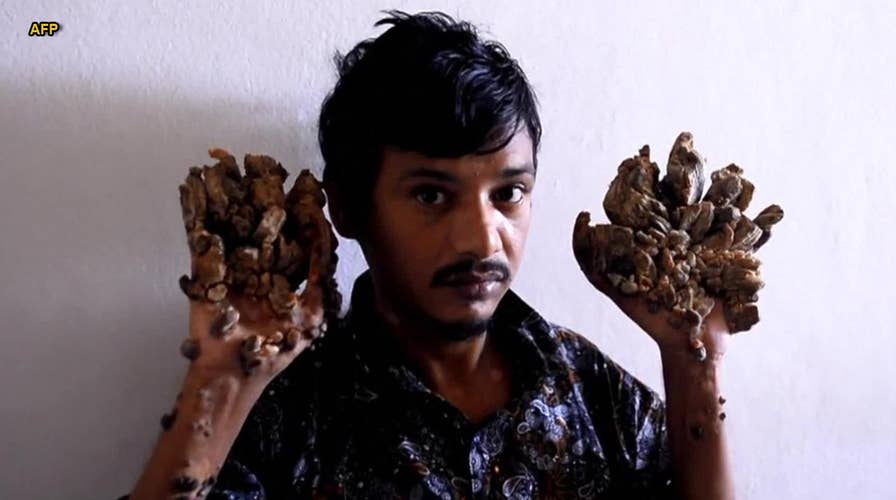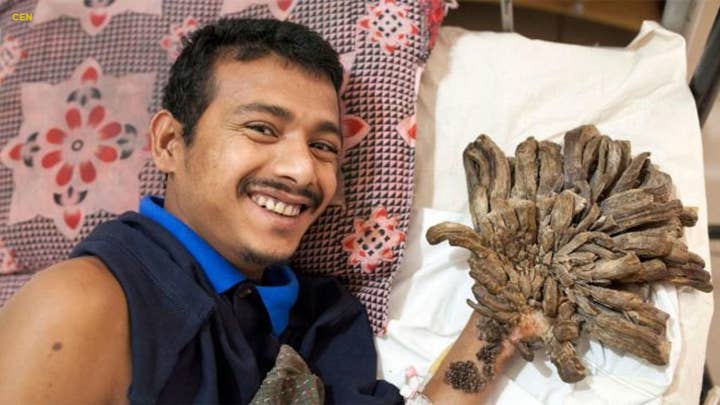'Tree Man' begs for hands to be amputated to relieve pain: Report
Abul Bajandar, 28, has had over 20 operations to remove the warts, but a recent relapse allegedly caused them to come back worse than before.
A Bangladeshi father dubbed the “Tree Man” because of bark-like growths warping his hands and fingers has reportedly been begging doctors to amputate his limbs to relieve his pain.
Abul Bajandar, 28, has had over 20 operations to remove the warts, but a recent relapse allegedly caused them to come back worse than before.
“I cannot bear the pain anymore, I can’t sleep at night,” Bajandar, a father of one, reportedly told Agence France Presse (AFP). “I asked the doctors to cut off my hands so I can at least get some relief.”
In January, it was reported that Banjadar had landed back in the hospital due to a relapse of his condition.
Bajandar was diagnosed with epidermodysplasia verruciformis (EV), which stems from chronic HPV, and causes patients to develop polymorphous cutaneous lesions and leaves them at high risk of developing non-melanoma skin cancer. According to the Genetic and Rare Diseases Information Center (GARD,) while the exact number of patients who have EV is unknown, it’s been reported at least 200 times so far.
COLORADO GIRL, 7, DIAGNOSED WITH RARE TICK PARALYSIS AFTER OVERNIGHT CAMP
The condition is incurable, but surgical treatment is an option for some patients. Bajandar has already had 11 pounds worth of growths removed from his hands in his lifetime. At its worst, Bajandar is unable to eat, drink, work or hold his own child.
In January, Bajandar reportedly expressed regret at skipping hospital appointments that led to his relapse.
“I made a mistake by leaving the hospital,” Bajandar reportedly said, according to The Sun. “I sought alternative treatment but could not find any. I now understand I should have stayed and continued the treatment.”
Bajandar is now allegedly seeking treatment abroad but is lacking funding.
CLICK HERE TO GET THE FOX NEWS APP
According to The Sun, his case will reportedly be discussed by Dhaka Medical College Hospital’s board, which treated a young girl with the same condition in 2017.









































